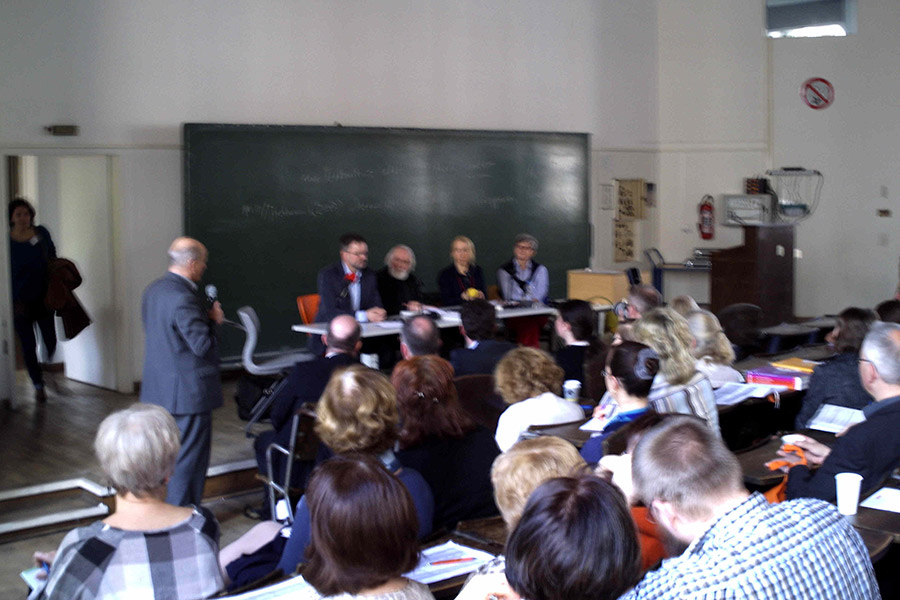On March 30 and April 1, 2017 the 44th session of Professional Association for German as a Foreign language (FaDaF) was held at Technical University of Berlin. Within the session the participants discussed different questions and problems connected with teaching German for various age groups.
Polotsk State University was represented by the teacher of World literature and Foreign Languages Department Irina Chebotarskaya who was awarded with DAAD (German Academic Exchange Service) scholarship for participation in the session. The presented reports were devoted to teaching German as a foreign language for students. In this field various Internet-resources have a great potential for learning languages, for example, BASIC GERMAN which is developed on the base of a mental lexicon category (joint project of German and Japanese researchers).
The modern teaching practice is focused on the effective use of language at enterprises and industries that requires other approaches to skills requirements. Many programmes and researchers are funded by Ministries of Education of Federal countries (for example, «Integration durch Qualifizierung (IQ)» project – teaching professional German for medical workers on the basis of scripts (project developed by the Ministry of Education of Lower Saxony).
A range of reports were devoted to the aspects of scientific text and its components as a specificity of its functioning and necessity to teach students how to write scientific texts in German.

The report, presented by the teacher of the Language Centre at AALTO University Hans-Joachim Schulz, was aimed at the teaching process for students studying economic programmes according to FLIPPED CLASSROOM principle.
On April 1, 2017 the German Academic Exchange Service (DAAD) carried out a methodical seminar «German as a foreign language: individual, activity and communicative approaches». Professor Olga Averina shared her experience about teaching German for students of Biology Faculties studying German at A1-A2 levels.